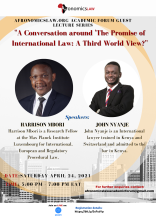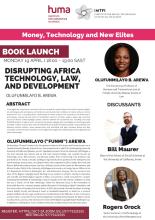Twelfth Sovereign Debt News Update: In Response to Apparent Fiscal Realities
The African Sovereign Debt Justice Network brings to you an update of African sovereign debt news and updates on events and happenings on and about Africa that reveal how sovereign debt issues are engaged by the various stakeholders.

